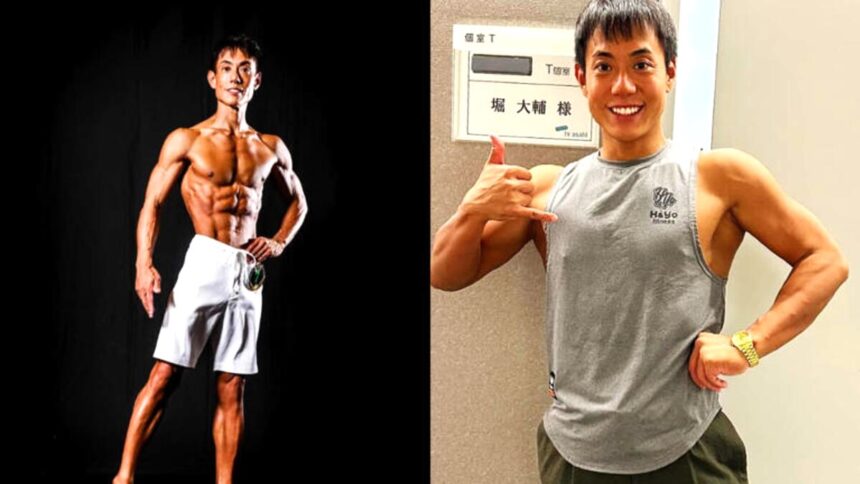The Unbelievable Sleep Routine of Daisuke Hori
Imagine living on just 30 minutes of sleep per day for over a decade. This might sound like a science fiction plot, but it’s the reality for Daisuke Hori, a 40-year-old entrepreneur from Hyogo, Japan. According to reports, Hori has adhered to this extreme sleep schedule for the past 12 years, claiming it has “doubled” his productive life. But what’s the science behind such an astonishing practice, and is it truly sustainable?
The 30-Minute Sleep Challenge
Daisuke Hori’s sleep regimen is as unconventional as it gets. He has reportedly managed to cut down his daily sleep to just 30 minutes, arguing that this extreme reduction has significantly enhanced his work efficiency and overall focus. Hori attributes his ability to maintain this schedule to a combination of high-quality sleep, exercise, and caffeine. He believes that high-quality rest and specific lifestyle practices can make up for the lack of hours spent sleeping.
In a reality show by Japan’s Yomiuri TV, which followed Hori for three days, viewers saw him function with minimal sleep. For example, he was filmed sleeping for just 26 minutes, then promptly waking up, eating breakfast, going to work, and hitting the gym. Hori’s claims have sparked curiosity and skepticism, making him a subject of international fascination.
The Science of Sleep: What Experts Say
While Hori’s routine may seem impressive, it stands in stark contrast to well-established sleep science. Most health experts recommend that adults get between 6-8 hours of sleep per night to maintain optimal health. Insufficient sleep can negatively affect mood, cognitive functions, and overall well-being. Chronic sleep deprivation is known to impair immune function, increase the risk of chronic diseases like heart disease and diabetes, and negatively impact mental health.
Sleep experts emphasize the importance of adequate sleep for cognitive and physical health. Severe sleep deprivation can lead to impaired cognitive function, including issues with attention, concentration, and decision-making. Over time, it can result in memory loss and increased risk of neurodegenerative diseases like Alzheimer’s.
During sleep, the body performs essential functions such as producing cytokines, which help fight infections and manage inflammation. Without sufficient sleep, cytokine production drops, making the body more vulnerable to illnesses.

High-Quality Sleep vs. Quantity: A Closer Look
Hori’s argument that high-quality sleep can replace longer sleep durations is intriguing but controversial. He points to professions like doctors and firefighters who often operate on limited sleep yet maintain high efficiency. However, these individuals typically have the advantage of experiencing deeper and more restorative sleep phases, even if briefly.
It is well-established that the human body requires specific sleep stages—such as deep sleep and REM (rapid eye movement)—for essential restorative processes. Extreme reduction in sleep time means insufficient progression through these critical stages, leading to ‘microsleeps’—brief involuntary episodes of sleep that impair cognitive performance and aren’t a sustainable solution.
Extreme Sleep Deprivation: The Risks and Realities
Extreme sleep deprivation, like that practiced by Hori, disrupts the body’s circadian rhythm and can result in severe health consequences. Disrupting this natural rhythm can lead to cardiovascular problems, hormonal imbalances, and mood disorders such as anxiety and depression.
While Hori claims that his minimal sleep routine has allowed him to be more productive, the negative health impacts of such extreme sleep deprivation cannot be ignored. Productivity is not just about the number of hours awake but also about maintaining cognitive sharpness, emotional stability, and overall health.
The Case of Thai Ngoc: A Comparative Perspective
In an extraordinary parallel, an 80-year-old Vietnamese man named Thai Ngoc claims to have not slept for over 60 years due to a fever-induced condition. Despite various treatments, his insomnia persists. While Ngoc’s case is rare, it underscores the complex relationship between sleep and health.
Both Hori and Ngoc’s cases challenge traditional understanding, but they also highlight the potential dangers of deviating too far from established sleep recommendations.
Balancing Sleep and Health
Daisuke Hori’s practice of sleeping only 30 minutes a day for 12 years raises fascinating questions about the limits of human adaptability and the nature of sleep. While his claims of increased productivity are noteworthy, the broader scientific consensus underscores the necessity of adequate sleep for maintaining overall health and well-being. Extreme sleep reduction is unlikely to be a viable long-term strategy for most people, and balancing sleep with health remains crucial.
Ultimately, while Hori’s unique approach to sleep may defy conventional wisdom, it serves as a reminder of the critical importance of understanding and respecting our body’s natural needs for rest and recovery.
Read More : Alex Pereira’s Ambitious Plan: A Middleweight Return to Challenge Dricus du Plessis






